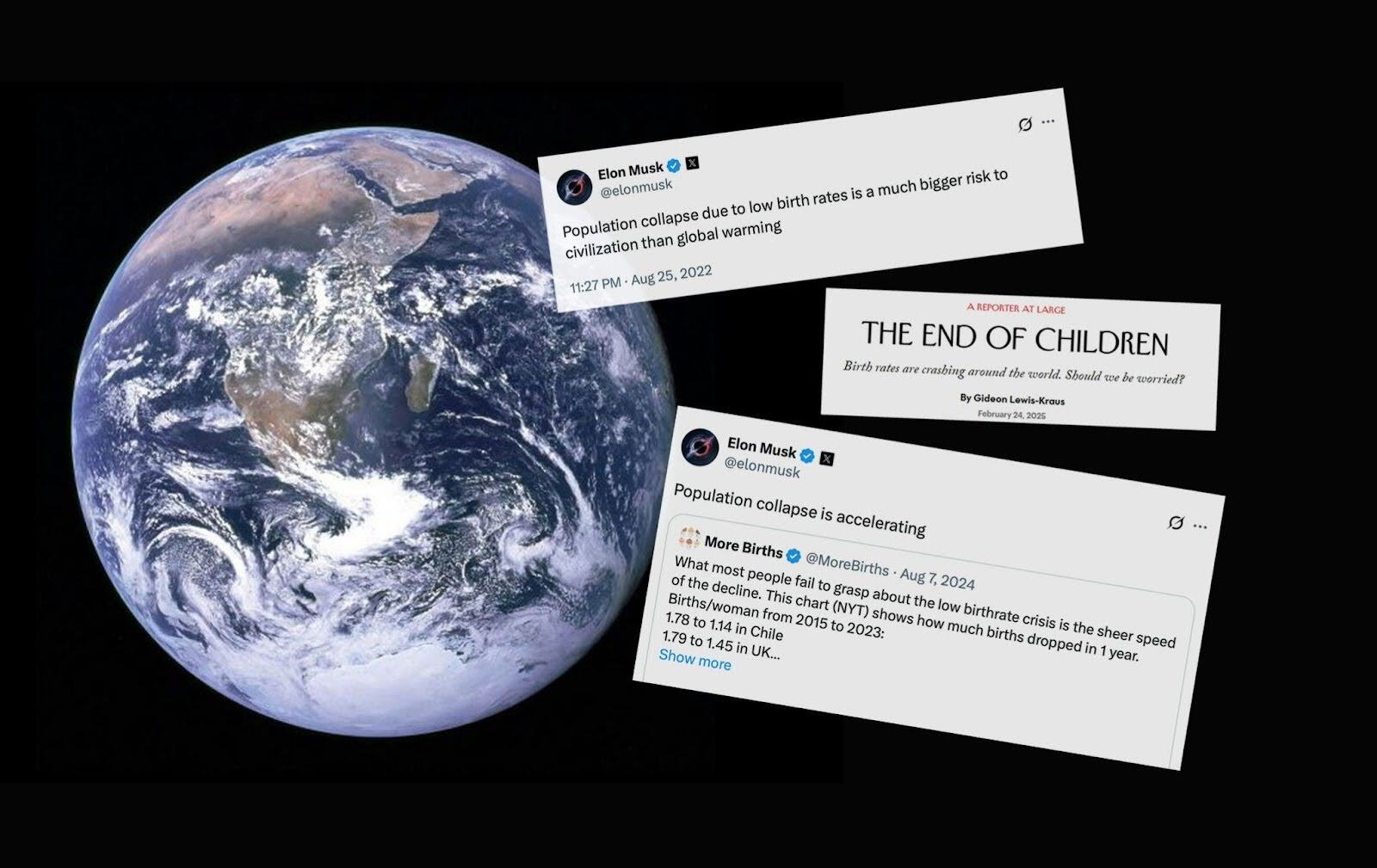Far-right authoritarian pundits and political actors, from Matt Walsh to Elon Musk, all seem to have gotten the same memo instructing them to fixate on “low” fertility and birth rates. Musk has claimed that “population collapse due to low birth rates is a much bigger risk to civilization than global warming” and that it will lead to “mass extinction.”
Some liberals are flirting with this narrative, too. In a February New Yorker essay, Gideon Lewis-Kraus deploys dystopian imagery to describe the “low” birth-rate in South Korea, twice comparing the country to the collapsing, childless society in the 2006 film Children of Men.
It’s not just liberals and authoritarians engaging in this birth-rate crisis panic. Self-described leftist Elizabeth Bruenig recently equated falling fertility with humanity’s inability “to persist on this Earth.” Running through her pronatalist Atlantic opinion piece is an entirely uninterrogated presumption that fertility rates collected today are able to predict the total disappearance of the species Homo sapiens at some future time.
But is this panic about low fertility driving human population collapse supported by any evidence?



The hell it isn’t! As societies approach 1:1 between working and elderly they quickly run into the problem of having enough people to do elderly care and do regular work. Japan is already experiencing a shortage of caregivers and the worst of it won’t arrive until 2050.
Then you are going to have to start killing the elderly because the plain and painful truth is that they are expensive. They require increasingly costly medical care to keep them alive along with increasing physical assistance as they age.
There is no magic wand to be waived where today’s elderly DON’T get out more than they put in…not unless they die when they quit working.
Different username but I’m not entirely convinced you’re a different user, so again my last reply.
Holy cow did you just stop reading what I wrote after the part you quoted? It’s a financing problem, not enough tax revenue. It’s not enough funding to attract caregivers, not a physical shortage of bodies. You need a massive, massive, massive, massive ^10 generational shortage before you run into a physical shortage of bodies, which of course I don’t advocate for.
Even your link “Consequently, investment in the pension system, healthcare facilities, long-term care, and welfare will become more important.” WHICH IS EXACTLY WHAT I SAID, IT’S A FINANCING PROBLEM.
Holy cow at the ridiculousness of your reply and very, very likely bad faith. This is definitely my last reply to you. It’s not about elderly stage of life and only that. It’s the person’s and generation’s lifetime. If a person (on average, over large populations, over a generation, I wonder how many explanatory terms I need for you to discuss in good faith) or generation requires more than what they put into the system (again, lifetime), and we need an evergrowing economy to keep giving each generation more than what they put into the system (again, lifetime), that is quite literally THE definition of an unsustainable system. Slow clap. Again, it’s not about that your elderly years are more expensive than your 20-65 years, it’s about your and your generation’s lifetime (see list of explanatory terms above).